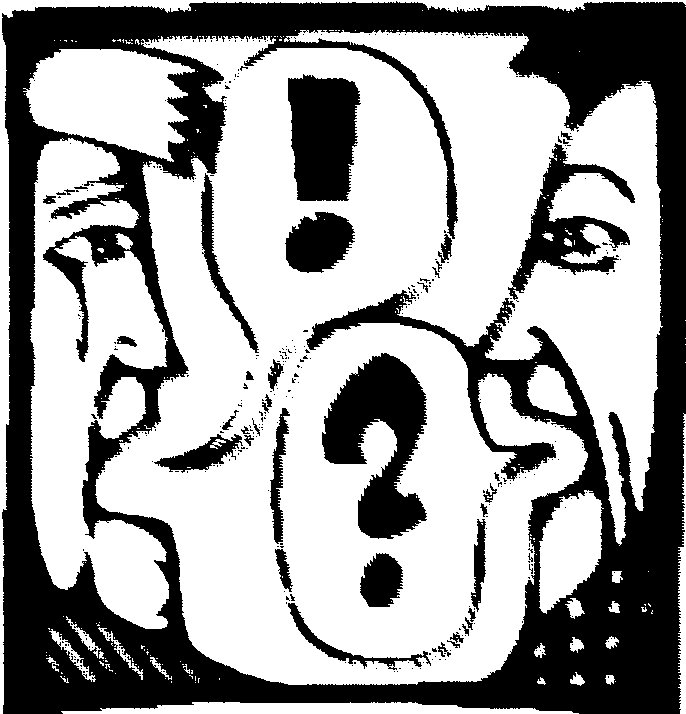
- •Донецький національний університет економіки і торгівлі імені Михайла Туган-Барановського
- •Economics Today
- •Content
- •Texts for Individual Reading
- •Передмова
- •Unit 1. What does economics study?
- •Vocabulary.
- •What does economics study?
- •Money price human wants scarcity
- •What does economics study?
- •Pronouns
- •Unit 2. Different Economic systems.
- •Vocabulary.
- •Different economic systems
- •Outstanding economists.
- •Unit 3. Economics as a social science.
- •Vocabulary.
- •Try to explain the above mentioned economic notions as you understand them, by your own words.
- •Economics as a social science.
- •Economics as a social science
- •Outstanding economists
- •Unit 4. Economics as a policy.
- •Vocabulary.
- •Economics as policy.
- •Economics and policy
- •Outstanding economists.
- •Unit 5. Main economic concepts.
- •Vocabulary.
- •Main economic concepts.
- •Outstanding economists.
- •2. Define:
- •Unit 6. Market, Supply and Demand.
- •Vocabulary.
- •Market, supply and demand
- •What money can’t buy
- •Outstanding economists.
- •Unit 7. Prices and their formation.
- •Vocabulary.
- •Price and its formation.
- •Past Tenses
- •When prices draw us.
- •Outstanding Economists.
- •2. Value:
- •Unit 8. Taxes and Taxation.
- •Vocabulary.
- •Taxes and taxation
- •Past Tenses Past Perfect Simple
- •Past Perfect Continuous
- •Will Germany Start Tax Reform?
- •Crackdown on “alcohol disorder zones”
- •Outstanding economists.
- •Sources of government revenue
- •Public spending
- •Unit 9. Business organization.
- •Vocabulary.
- •Forms of business ownership in the u.S.A.
- •The Formal Organization.
- •Up and Down of People Express
- •Burr’s Business
- •3. Necessity:
- •Unit 10.
- •Forms of business small business
- •I. Can you stick with it?
- •How to make business plan.
- •The Passive Voice
- •Unit 11. Franchising.
- •Vocabulary.
- •Franchising.
- •Evaluate your franchise opportunities.
- •Mc’Donald’s : burger and fries a la français.
- •Invest:
- •5. Tax:
- •Unit 12.
- •International Trade.
- •International trade.
- •How to avoid business blunders abroad.
- •Vocabulary to Text 2.
- •Advertising.
- •Vocabulary:
- •Answer the questions:
- •Economic theories.
- •Vocabulary:
- •Answer the questions:
- •Main economic concepts.
- •Vocabulary:
- •Answer the questions:
- •Management.
- •Vocabulary:
- •Answer the questions:
- •Marketing.
- •Vocabulary:
- •Answer the questions:
- •Types of economic systems.
- •Vocabulary:
- •Vocabulary:
- •Practical Tasks:
- •Text 2. Classical Theories.
- •Vocabulary:
- •Practical Tasks:
- •Text 3. The Meaning of Management.
- •Vocabulary:
- •Practical Tasks:
- •What is you understanding of management?
- •Vocabulary:
- •Practical Tasks:
- •Text 5. Management Activities.
- •Vocabulary:
- •Practical Tasks:
- •Text 6. Classical Theories.
- •Vocabulary:
- •Practical Tasks:
- •Text 7. Fayol's Principles of Management.
- •Vocabulary:
- •Practical Tasks:
- •Text 8. F.W.Taylor and Scientific Management.
- •Vocabulary:
- •Practical Tasks:
- •Text 9. The Principles of Scientific Management.
- •Vocabulary:
- •Practical Tasks:
- •Text 10. Scientific Management after Taylor.
- •Vocabulary:
- •Practical Tasks:
- •Text 1. Comments on the Scientific Management School.
- •Text 2. L.F.Urwick.
- •Text 3. E.F.L.Brech.
- •Text 4. Max Weber and the Idea of Bureaucracy.
- •Text 5. Bureaucracy.
- •Text 6. Bureaucracy after Weber.
- •Questions for Discussions to texts 1-6.
- •Nobel prize winners.
- •1975: Nobel Prizes.
- •Money in our everyday life quotations. Attitudes to money.
- •Giving away money.
- •Money and everyday life.
- •Money and the family.
- •Money at work.
- •Money madness.
- •Possessions.
- •The economic model.
- •The psychology of money.
- •The very rich.
- •Young people, socialisation and money.
- •Poetry.
- •I have some fe a rainy day underneath me bed,
- •Is dis culture yours, cause it is not mine
- •It could do good but it does more bad
- •The coin speaks.
- •The hardship of accounting.
- •The millionaire.
- •Keys unit 1.
- •Comprehension check.
- •Unit 2.
- •Comprehension check.
- •Unit 3.
- •Comprehension check.
- •Unit 4.
- •Comprehension check.
- •Unit 5.
- •Comprehension check.
- •Unit 6.
- •Comprehension check.
- •Unit 7.
- •Train and check yourself
- •Unit 8.
- •Unit 9.
- •Comprehension check.
- •Fill in the chart
- •Unit 10.
- •Unit 11.
- •Comprehension check.
- •Unit 12.
- •Keys to the texts for individual reading
- •Economics Today
What does economics study?
We face with economic realities everywhere: in newspapers, TV programmes, magazines. We discuss prices, quantity of money, goods and services with our relatives and friends. Economics affects our daily lives. We know local, national and international economic problems and make our own decisions on them. Can we answer what is economics about? Many people think that economics is about money. Yes, economics studies how much people are paid, how much they spend. But the economics is more than just the study of money. Economics studies production and consumption. Human wants are unlimited, but the means of fulfilling them are limited. The world can produce a limited amount of goods and services, because the world has limited amount of resources. They are called factors of production and they are human resources, natural resources, and manufactured resources. The excess of human wants over what can be produced to fulfill these wants causes scarcity.
Economics is divided into two branches: macroeconomics and microeconomics. Macroeconomics studies the economy as a whole. Microeconomics focuses on individual markets.
Answer the questions:
Where can we face with various economic realities?
What economic notions do we discuss almost every day?
What is economics about?
What influences production and consumption?
Can we name human wants the driving force of progress?
Why can the world produce only a limited amount of goods and services?
What is unlimited?
Is it possible to balance unlimited human wants and limited resources for producing goods and services?
Reveal the meaning of the following economic concepts as you understand them:
Money price human wants scarcity
|
Let’s ponder!
|
|
The following text is, mainly, the same as the previous. But it’s longer, more difficult for understanding and rendering. What makes it so?
Read the text and find out words and word combinations which make the text alive, more interesting and not so academic as the first one.
What does economics study?
In our everyday life we face with economic realities almost everywhere: in newspapers, in television programmes, in all kinds of magazines not only the business ones. Even if we meet with our friends we discuss prices of this or that product or whether we have got enough money to afford definite goods or services ourselves.
The fact is that economics affects our daily lives. Continually we are being made aware of local, national and international economic problems, and continually we face with economic problems and decisions of our own. So what is economics about? Many people think that economics is about money. To some extent this is true. Economics has a lot to do with money: with how much money people are paid; how much they spend; what it costs to buy various items; how much money firms earn; how much money there is in total in the economy. But despite the large number of areas in which our lives are concerned with money, economics is more than just the study of money.
Economics is concerned with:
the production of goods and services: how much the economy produces in total; what particular combination of goods and services can be; how much each firm produces; what technique of production they use; how many people they employ. So, in other words, we may say that production is the transformation of inputs into outputs by firms in order to earn profit or meet some other objective.
the consumption of goods and services: how much the population as a whole spends and saves; what pattern of consumption is in economy; how much people buy of particular items; what particular individuals choose to buy; how people’s consumption is affected by prices, advertising, fashion and other factors.
So, consumption is the act of using goods and services to satisfy wants.
But what can influence production and consumption? Human wants, and they are virtually unlimited, yet the means of fulfilling human wants are limited. At any one time the world can only produce a limited amount of goods and services. They are called factors of production and they are as follows: human resources – labour; natural resources – raw materials and land; manufactured recourses – capital. So, here is the reason for scarcity: the excess of human wants over what can actually be produced to fulfill wants.
Economics is traditionally divided into two main branches – macroeconomics and microeconomics, where macro means “big” and micro means “small”. Macroeconomics is concerned with the economy as a whole. It studies aggregate demand and aggregate supply. Microeconomics is concerned with the demand and supply of particular goods and services and resources: cars, butter, clothes and haircuts, computers and coal.
|
COMPREHENSION CHECK |
|
Exercise 1. Are these statements true or false?
We never face with economic realities because it is top secret information.
We often discuss prices, goods and services, our ability to buy definite good or service with friends and in families.
We have to solve some economic problems and make decisions of our own very often, if not daily.
Economics is a science which studies production and consumption.
Production is the transformation of one kind of production into another for satisfying people’s needs and wants.
Consumption depends on many factors and price is the least important one.
It’s easy to satisfy human wants, because the means of fulfilling them are unlimited.
Macroeconomics studies grand totals. Microeconomics studies individual units.
Exercise 2. Answer the questions.
What concepts may be included into economic realities of our everyday life?
Is economics about money only?
What does economics study?
What is production?
What may influence consumption? Do the enumerated aspects influence your individual consumption? How?
Why are human wants unlimited? Is it possible to limit them? Why and how?
What does macroeconomics study?
What does microeconomics study?
|
|
GRAMMAR Verbs be, have. Pronous. |
|
Simple Tenses | ||
|
be, have | ||
|
Present |
Past |
Future |
|
I am |
I, he, she, it was |
I, we shall be |
|
he, she, it is |
|
|
|
we, you, they are |
we, you, they were |
you, they, he, she, it will be |
|
I, we, you, they have |
had |
I, we shall have |
|
|
|
you, they, she, he, it will have |


